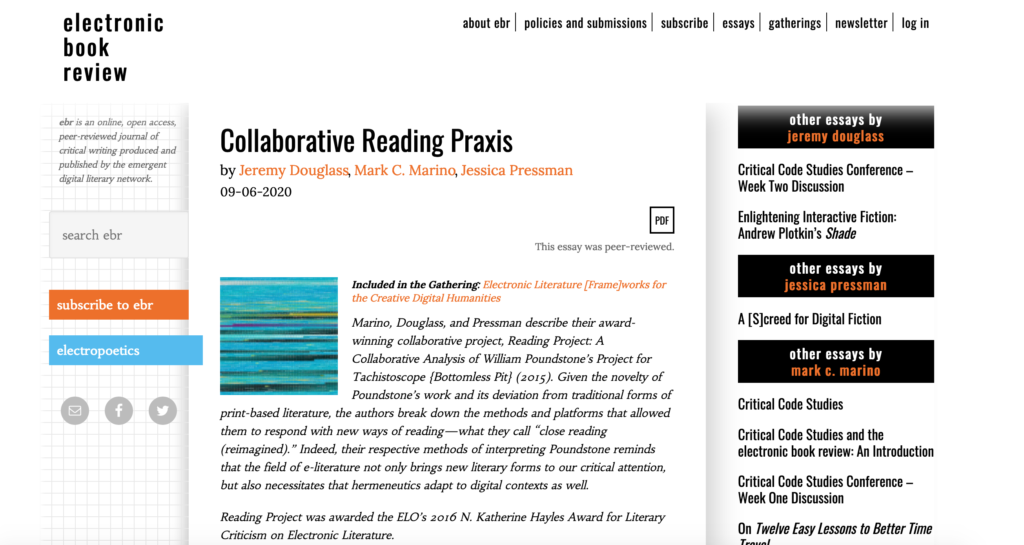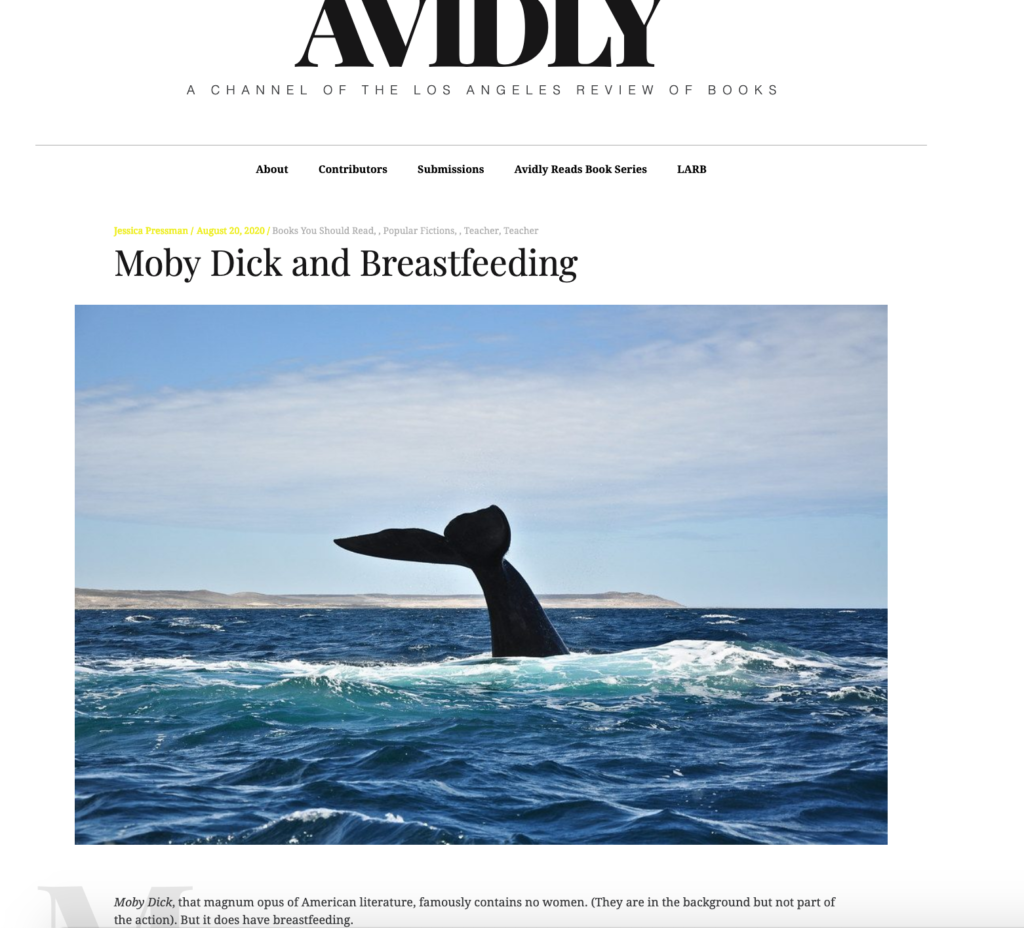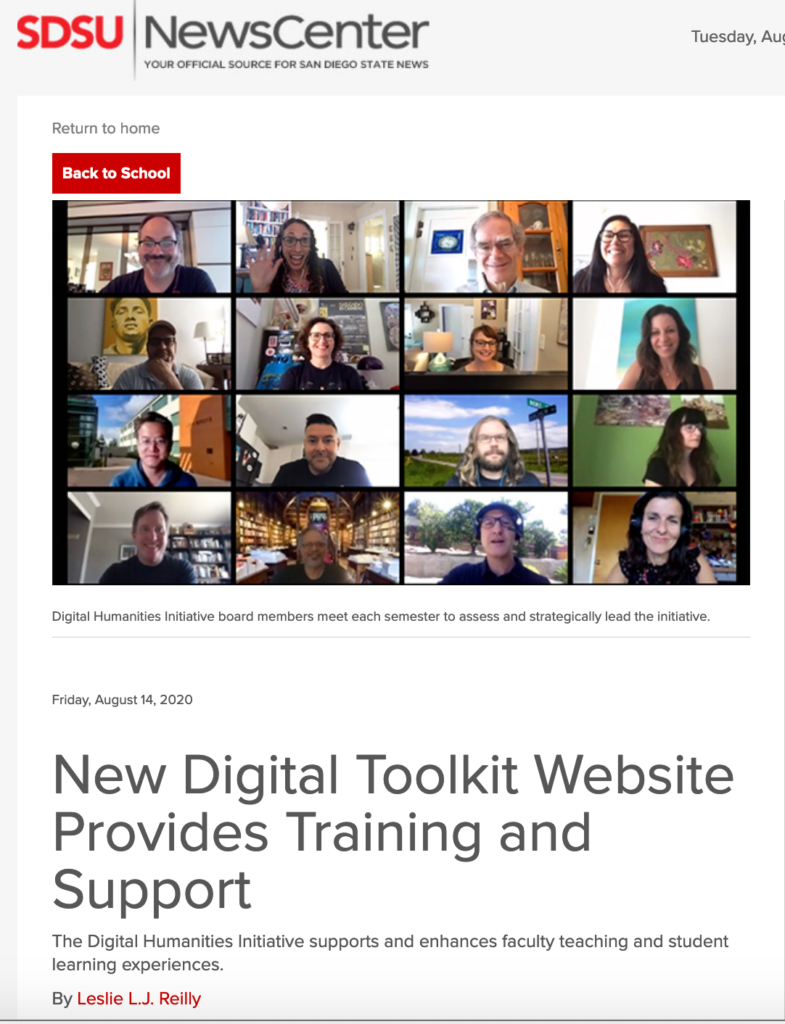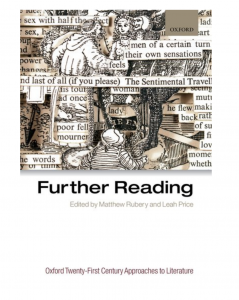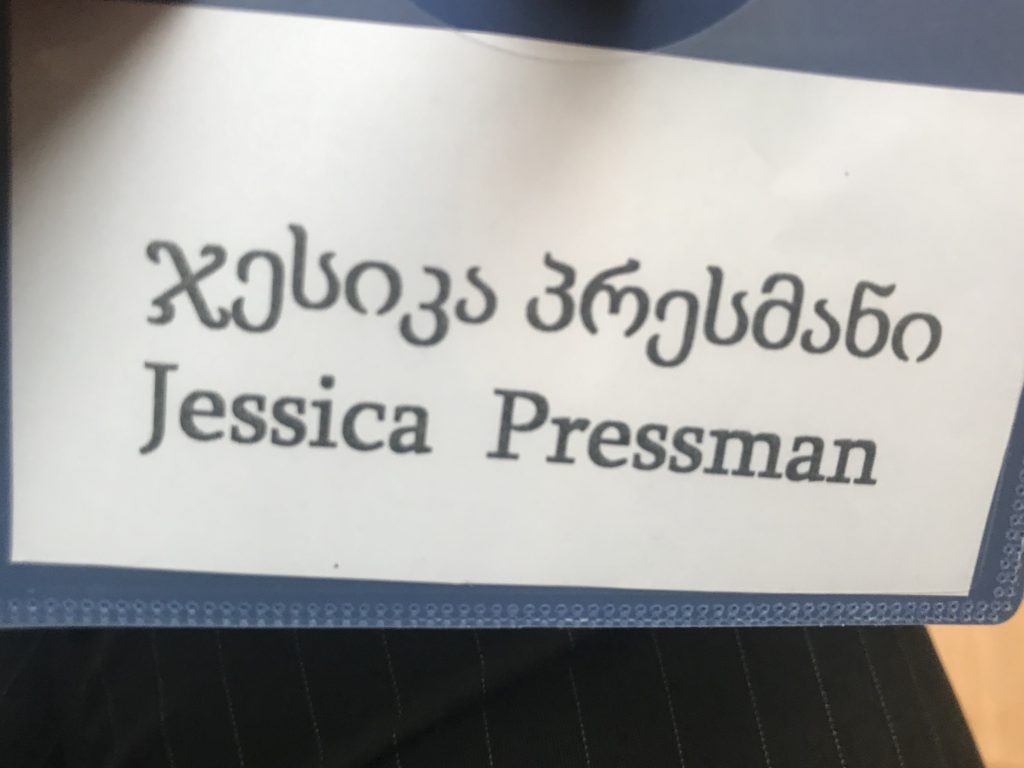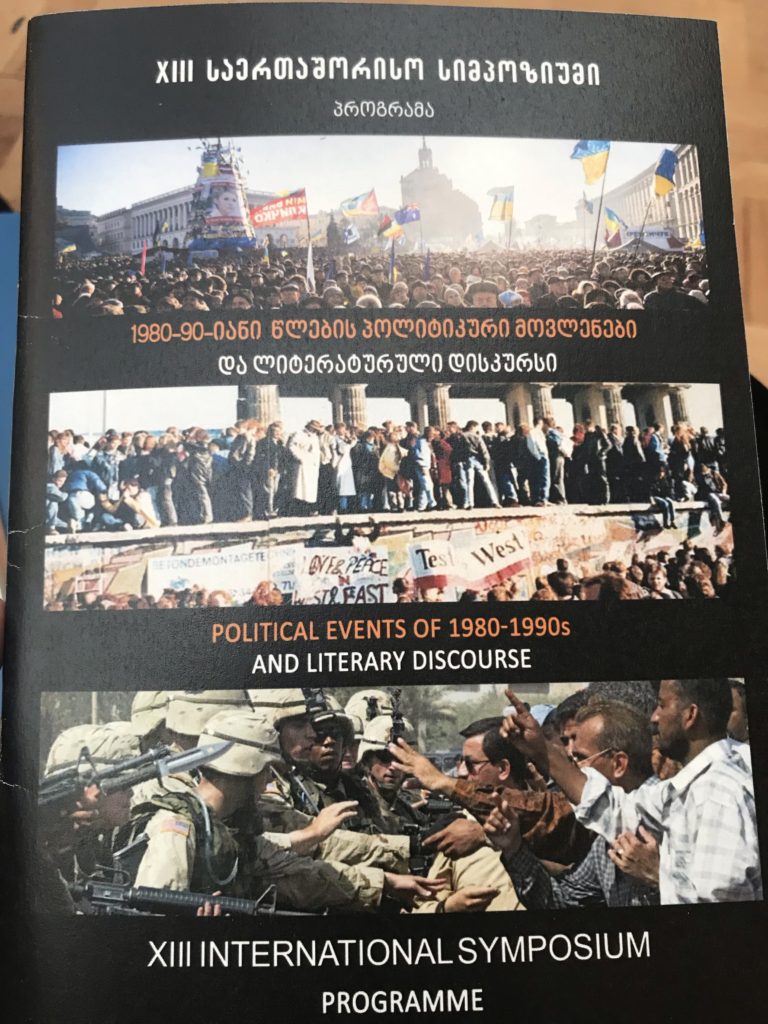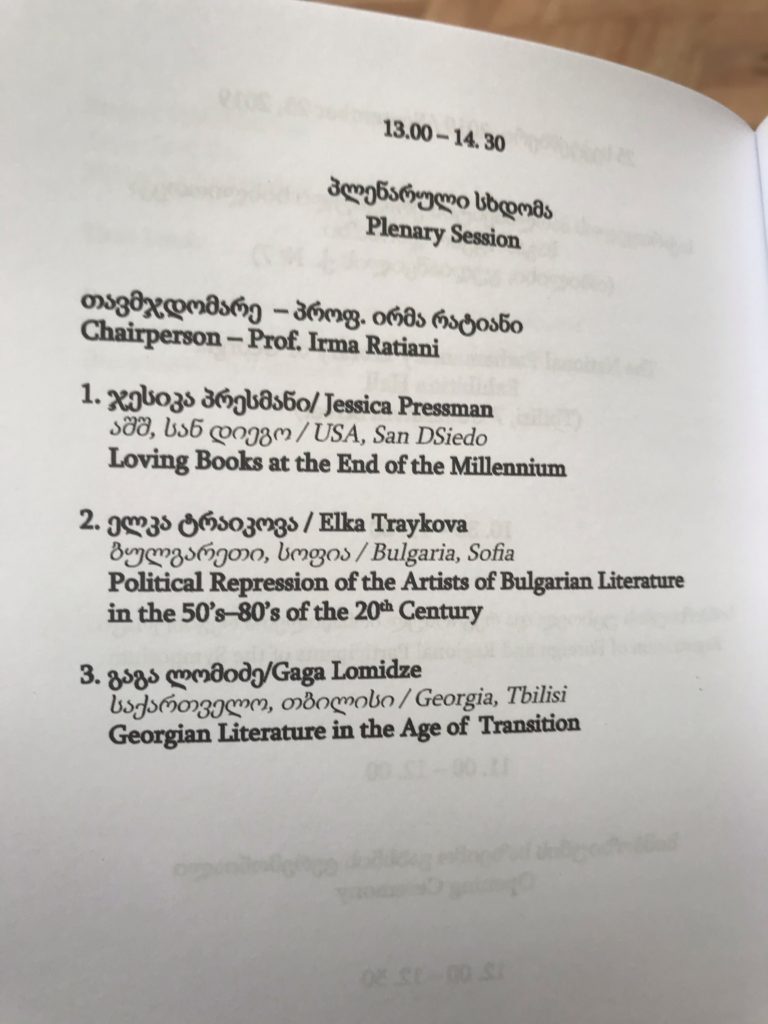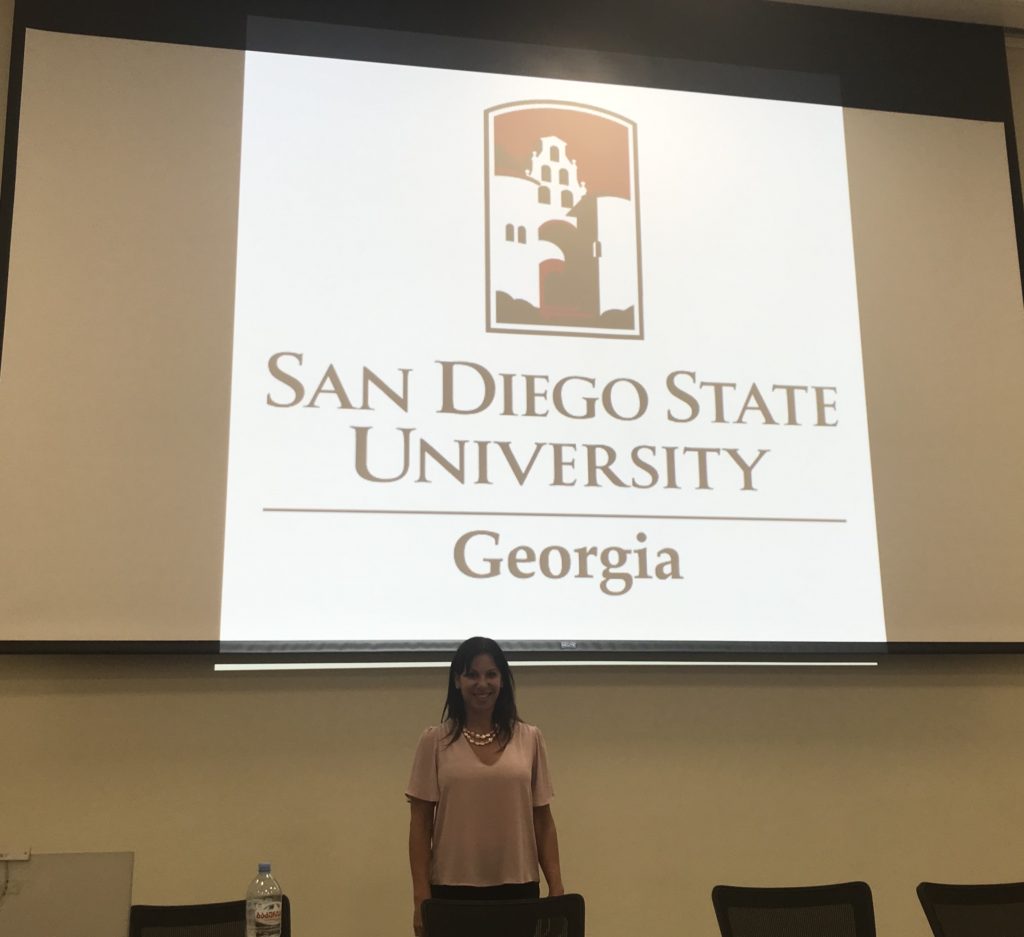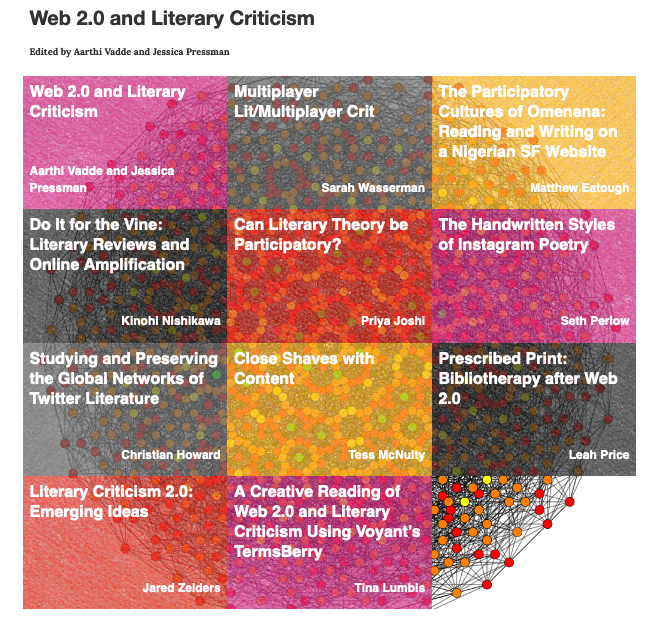Further Reading
Edited by Matthew Rubery and Leah Price
What does reading mean in the twenty-first century? As other disciplines
challenge literary criticism’s authority to answer this question,
English professors are defining new alternatives to close reading and to
interpretation more generally. Further Reading brings together
thirty essays drawing on approaches as different as formalism,
historicism, neuroscience, disability, and computation. Contributors
take up the following questions: What do we mean when we talk about
‘reading’ today? How are reading techniques evolving in the digital era?
What is the future of reading?
This book foregrounds reading as
a topic worthy of investigation in its own right rather than as a
sub-section of histories of the book, sociologies of literacy, or
theories of literature. As our knowledge of reading changes in step with
the media and the scholarly tools used to apprehend it, a more precise
understanding of this topic is crucial to the discipline’s future. This
collection introduces new ways of conceptualizing the term’s forms,
boundaries, and uses. Its contributors bring varied vocabularies to bear
on the contested nature and continued importance of reading, within the
academy and beyond.
TABLE OF CONTENTS
Introduction
Scenes
1: In Ancient Rome, Joseph Howley
2: In the Classroom, Christopher Cannon
3: In the Custom House, Isabel Hofmeyr
4: In Public, Steven Connor
5: Across Borders, Wendy Griswold
6: Neuroimaged, Natalie Phillips, Cody Mejeur, Melissa Klamer, Karah Smith, and Sal Antonnuci
Styles
7: Distant, Elaine Treharne
8: Assigned, Deidre Lynch
9: Actual, Garrett Stewart
10: Technical, Elaine Freedgood and Cannon Schmitt
11: Postcritical, Rita Felski
12: Enumerative, Andrew Piper
13: Repeat, Christina Lupton
Senses
14: Sight, Johanna DruckerS
15: Sound, Christopher Grobe
16: Touch, Gillian Silverman
17: Aurality, Georgina Kleege
18: Deafness, Rebecca Sanchez
19: Accessibility, Jonathan Lazar
Brains
20: Neuroscience, Paul B. Armstrong
21: Mental Representation, Andrew Elfenbein
22: Mindreading and Social Status, Lisa Zunshine
23: Consciousness, Anežka Kuzmičová
24: Pleasure, Gabrielle Starr and Amy Belfi
25: Dyslexia, Maryanne Wolf
Futures
26: Tracked, Whitney Trettien
27: Translated, Rebecca Walkowitz
28: Electronic, Jessica Pressman
29: Interfaced, Lori Emerson
30: Machine, Stephen Ramsay
31: Not, Lisa Gitelman


